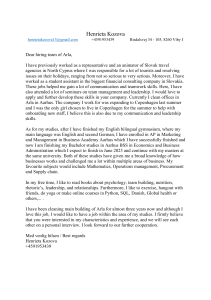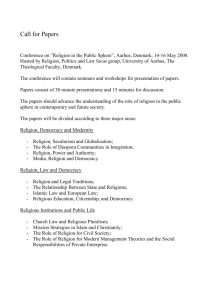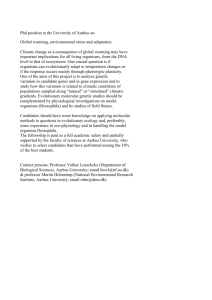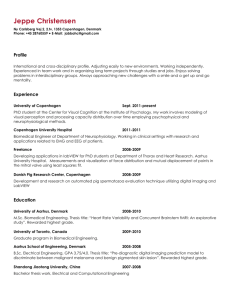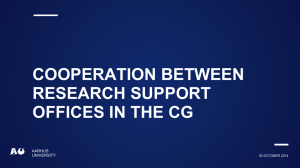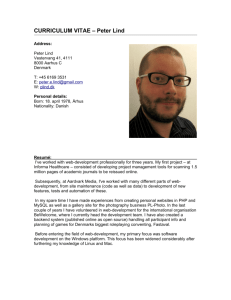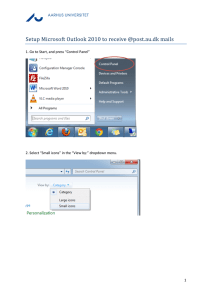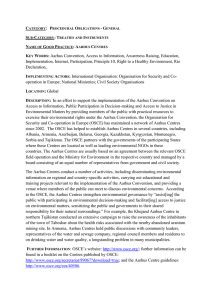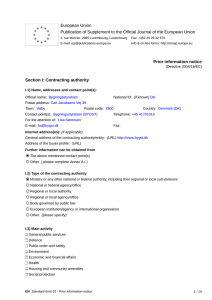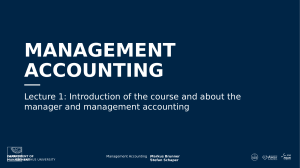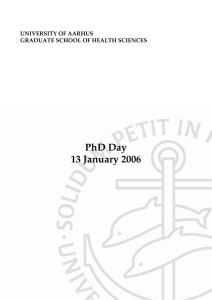STUDENT REPORT - AARHUS SCHOOL OF BUSINESS AND SOCIAL SCIENCE
advertisement
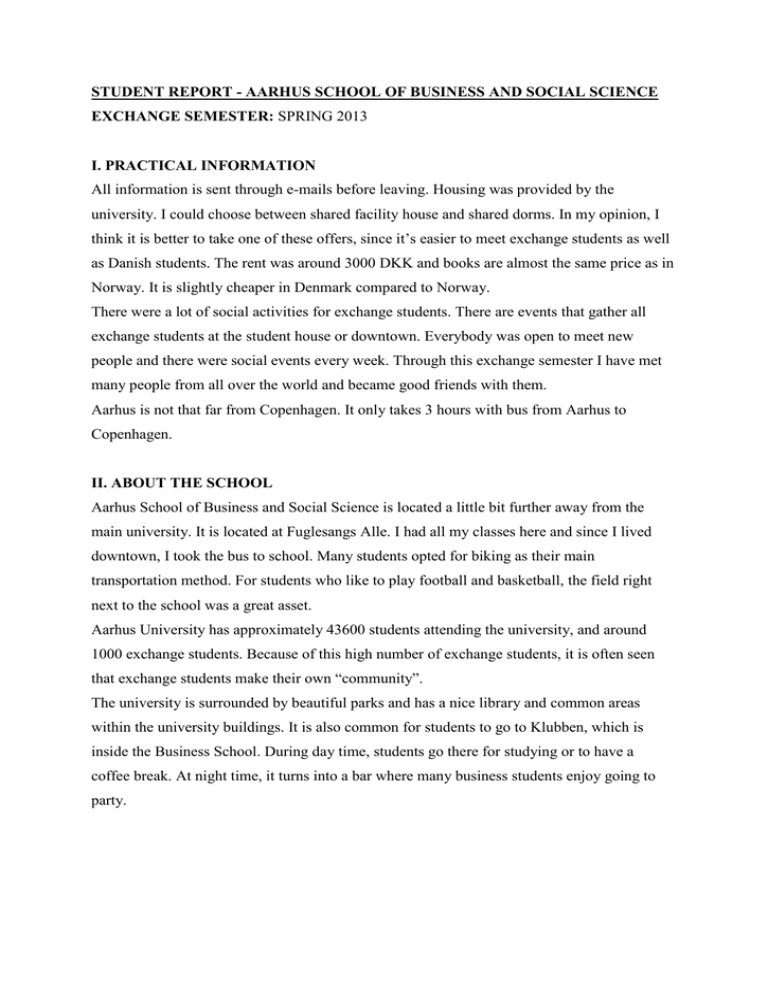
STUDENT REPORT - AARHUS SCHOOL OF BUSINESS AND SOCIAL SCIENCE EXCHANGE SEMESTER: SPRING 2013 I. PRACTICAL INFORMATION All information is sent through e-mails before leaving. Housing was provided by the university. I could choose between shared facility house and shared dorms. In my opinion, I think it is better to take one of these offers, since it’s easier to meet exchange students as well as Danish students. The rent was around 3000 DKK and books are almost the same price as in Norway. It is slightly cheaper in Denmark compared to Norway. There were a lot of social activities for exchange students. There are events that gather all exchange students at the student house or downtown. Everybody was open to meet new people and there were social events every week. Through this exchange semester I have met many people from all over the world and became good friends with them. Aarhus is not that far from Copenhagen. It only takes 3 hours with bus from Aarhus to Copenhagen. II. ABOUT THE SCHOOL Aarhus School of Business and Social Science is located a little bit further away from the main university. It is located at Fuglesangs Alle. I had all my classes here and since I lived downtown, I took the bus to school. Many students opted for biking as their main transportation method. For students who like to play football and basketball, the field right next to the school was a great asset. Aarhus University has approximately 43600 students attending the university, and around 1000 exchange students. Because of this high number of exchange students, it is often seen that exchange students make their own “community”. The university is surrounded by beautiful parks and has a nice library and common areas within the university buildings. It is also common for students to go to Klubben, which is inside the Business School. During day time, students go there for studying or to have a coffee break. At night time, it turns into a bar where many business students enjoy going to party. Course registration Before school starts, you will receive an e-mail about which courses you can choose. When getting your timetable some courses might overlap. The only valid reason to change courses is if the subjects are overlapping or if the home school won’t accept the course. Arrival The school told us to send them an e-mail on our arriving date. This is for them to arrange how we can get the keys to our dorms and so another Danish student can drive us to our dorm. The intro week lasted for one week. All exchange students were divided in groups with tutors. Under the introduction week, the tutors showed us the school, the city and all the bars. International Office There is an international office close to the main university campus. They have a lot of responsibilities for exchange students. Since there are campuses everywhere, you have to go to different places to talk with different people. That is one thing that can be a bit annoying. At the International Office, they handle your housing and university issues. III. ACADEMICS All the lectures were in English, including the books. That was different from what I’m used to in Norway. The workload is almost the same as at BI, since they also have exam that counts 100%. We did not have that much cases or groupwork. It was more discussions in class. The teacher asks questions and the students answer. The study style is almost the same as in Norway, where it is emphasized on applying the knowledge. In some subjects I regret buying the books since I didn’t use it that much. For example in International Management, there were lots of articles and slides. The Danish grading scale is: 12 – A, 10 – B, 7 – C, 4 – D, 2 – E, 00 – Fx and -3 – F. To pass you need a 2. Courses: Aspects of Denmark 5 credit points Written assignment Industrial Economics 5 credit points 3 hours written exam (closed book) International Management 10 credit points 3 hours written exam (open book) Sustainable Economics 5 credit points 3 hours written exam (open book) International Marketing 5 credit points 3 hours written exam (open book)
